Shows

Making the MuseumPlayful Engagement, with Ed RodleyWhat if we combined immersion, emotion, storytelling — and games? We all want “engagement” … but what is engagement? How can our projects create it? What are the elements that go into it? Can game theory and play teach us how to make our experiences better? What is “narrative transportation”? Why are emotions key to memory creation? And what do Renaissance fairs have to do with museums? Ed Rodley (Co-Founder and Principal, The Experience Alchemists), joins MtM host Jonathan Alger (Managing Partner, C&G Partners) to discuss “Playful Engagement.” Along the way: holodecks, Sleep No More, portmantea...
2025-02-0458 minMuseopunksEpisode 45: Getting By With A Little HelpMutual aid systems rely on forms of exchange, sharing support and resources, to enable communities to care for their members in the face of difficulty. In May this year, Museum Workers Speak started the Museum Workers Relief Fund, a form of ‘radical redistribution’ that seeks donations from those with means to support US-based museum workers who have been laid off, furloughed, or otherwise severely impacted by the COVID-19 pandemic. Those donations are then redistributed as $500 gifts to help recipients stay afloat.
In this episode, we speak with Paula Santos, Christian Ramirez and Alyssa Greenberg about the initiative and the role of m...
2020-09-1051 minMuseopunksEpisode 44: A conversation among friendsIt’s been a few weeks since the world was upended in the wake of COVID-19. In this episode, we catch up with an old friend, Sharna Jackson, to hold space for some reflection, some mourning, and some laughter.
Never miss an episode! Subscribe to Museopunks on iTunes, Stitcher or Spotify
2020-05-2846 minMuseopunksEpisode 43: How do we live in turbulent times?Even before a pandemic changed everything, we were living in turbulent times. Extreme partisanship defines politics in many countries, inequality grows even wealthy countries, and faith in institutions is diminishing. How do museums create environments of trust, especially where there are histories of distrust, victimisation and oppression? In this episode, we speak with Dina Bailey, former Director of Methodology and Practice for the International Coalition of Sites of Conscience, and Tim Phillips, founder and CEO of Beyond Conflict, to consider what we can learn from transitional justice approaches when addressing the painful legacies of the past.
Never miss an episode...
2020-03-201h 07MuseopunksEpisode 42: A #MuseumMeToo MomentSince the #MeToo movement began in 2017, many in the museum sector have wondered when members of our own community would be called to account. In this episode, the Punks are joined by Robin Pogrebin, Zachary Small and Anne-Marie Quigg to explore a major #MuseumMeToo moment and ask how bullying and harassment shape workplace culture.
2020-02-1354 minMuseopunksEpisode 41: Digitization is not neutralOver the past decade, museums have increasingly shared high resolution open access images of their collections. Yet there are significant legal and ethical complexities related to digital cultural heritage, particularly when blanket decisions about open access are made without involving communities of origin. In this episode, the Punks are joined by Mathilde Pavis and Andrea Wallace to discuss their Response to the 2018 Sarr-Savoy Report, which addresses intellectual property rights and open access relevant to the digitization and restitution of African Cultural Heritage and associated materials, and come to the conclusion that we need to be discussing digital cultural heritage with...
2019-12-1946 minMuseopunksEpisode 40: A very human exhibitionBeing Human, the new permanent gallery at Wellcome Collection, explores what it means to be human in the 21st century. In creating the exhibition, the Wellcome Collection worked with two advisory panels - one composed of scientists, and the other of artists, activists and consultants, convened in collaboration with the University of Leicester’s Research Centre for Museums and Galleries, focussed on the representation of disability and difference. The resultant experience embodies the idea that all can and should feel valued and connected.
In this episode, the Punks speak with Clare Barlow, curator of the exhibition, and Richard Sandell, Professor of...
2019-11-2656 min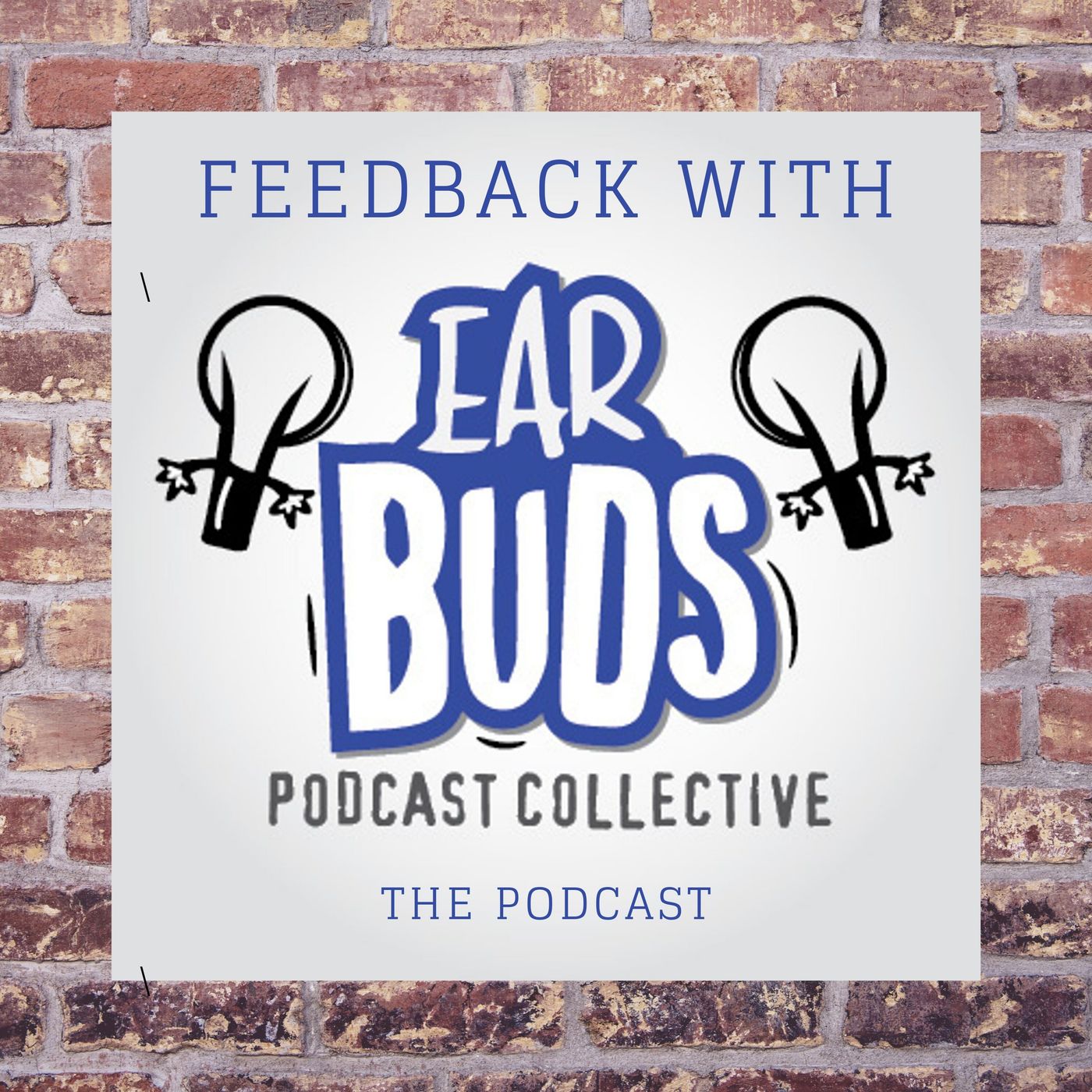
Feedback with EarBuds: The Podcast Recommendation Podcast3: "Museum Exploration" WeekWelcome to episode 3! It covers the week of October 21 - 25, 2019. Each week on this podcast, we will share the information that's within the newsletter put out by EarBuds Podcast Collective. EBPC is a listening movement. We send a weekly email with a theme and 5 podcast episodes on that theme, and each week is curated by a different person. Anyone can curate a list -- just reach out!This week's theme comes to us from Ian Elsner and is called Museum Exploration. Ian chose 5 podcast episodes that fit within that theme. Listen in to learn about why...
2019-10-2004 minMuseopunksEpisode 39: A new definition of “museum”?The season for existential crises continued this past month when the International Council of Museums (ICOM) announced that a working group had proposed a new definition for museums and that said definition would be voted on at the ICOM Triennial in Kyoto, Japan. We followed the many conversations that unfolded over the next few weeks, and asked a diverse group of museum colleagues around the world to share their thoughts on the issue with us. What does it mean to be a museum? Who does that definition exclude? And who is the audience for that definition?
Guest Contributors
Hannah Heller...
2019-10-1052 minMuseopunksEpisode 38: Decolonisation And Its DiscontentsAs decolonisation moves more firmly onto the agenda in museums, so to does its critique. In this episode, we speak with Sumaya Kassim, author of the essay 'The Museum Will Not Be Decolonised', and Nathan “Mudyi” Sentance to ask whether museums can dismantle the colonial gaze. We'll also find out more about the kinds of structural changes inside museums that may be necessary to fully support First Nations people and People of Colour working in our cultural institutions.
Never miss an episode! Subscribe to Museopunks on iTunes, Stitcher or Spotify
2019-09-121h 16MuseopunksEpisode 37: Experience doesn’t pay the rentUnpaid internships are commonplace in the museum world, supported by a culture that suggests “experience” and the chance to get “a foot in the door” are worth the sacrifice of time and lost earnings. This practice necessarily limits the sector’s ability to diversify or become equitable, by ensuring that only those who can afford to work uncompensated can participate. But there is some promise of change afoot! The Association of Art Museum Directors (AAMD) recently made a resolution calling on art museums to provide paid internships. At the same time, the Art and Museum Transparency group, a grassroots initiative to bring t...
2019-08-081h 13MuseopunksEpisode 36: Queering Your MuseumThe end of Pride Month does not mean that we should stop talking or thinking about LGBTQIA+ inclusion and queer curating practices in museums. This month, we’re joined by Craig Middleton and Nikki Sullivan, authors of the KINQ (or Knowledge Industries Need Queering)manifesto, and Alison Kennedy and Anna Woten, from AAM’s LGBTQ Alliance Task Force for Transgender Inclusion to discuss queering the museum.
2019-07-121h 04MuseopunksEpisode 35: Show Me The Money!On September 11, 2018, the Board of Directors of the Mountain-Plains Museums Association unanimously voted to require that any jobs or paid internships posted to the MPMA Job Bank would include the level of compensation– whether salary or hourly rate. The MPMA’s move was in line with a move by a number of museum associations to end salary cloaking, or the habit of hiding compensation levels rather than being transparent about them at the start of the hiring process.
In this episode, we’re joined by Will Stoutamire and Lauren Hunley (both on the Board of the MPMA), and Michelle Epps, Presid...
2019-05-221h 04MuseopunksEpisode 34: Paradigm LostIn early 2019, experience designer Ed Rodley asked the hivemind what they saw as the biggest issues facing ppl who make museum experiences in 2019? The answer from Jay Rounds, E. Desmond Lee Professor of Museum Studies emeritus at the University of Missouri, St. Louis, was “A surfeit of virtues.” Rounds proposed that, “There are so many demands for what an exhibit ought to be or do, or how it should be made, that they can paralyze us. Many of these demands seem virtuous in isolation, but some are in conflict with others, and it is impossible to do all of them at onc...
2019-04-261h 04MuseopunksEpisode 33: A Museum for EveryoneOF/BY/FOR ALL is a global movement and a set of tools to help community institutions around the world become more representative OF and co-created BY their communities. In this episode, we’re joined by OF/BY/FOR ALL founder Nina Simon and Rohini Kappadath, General Manager of Immigration Museum (Australia), to find out how to create a museum for everyone.
Never miss an episode! Subscribe to Museopunks on iTunes or Stitcher
2019-03-2853 minMuseopunksEpisode 32: Changing The CanonMuseum collections in established institutions come with long histories. So how do you change a museum’s canon? In this episode, we speak with Christopher Bedford, the Dorothy Wagner Wallis Director of The Baltimore Museum of Art, about the BMA’s decision in early 2018 to deaccession seven works by blue chip artists in the contemporary collection in order to strengthen its holdings of contemporary works by women and artists of colour.
Never miss an episode! Subscribe to Museopunks on iTunes or Stitcher
2018-12-2031 minMuseopunksEpisode 31: Are Museums Safe Spaces for Unsafe Ideas?Since the mid-1990s, it has been received wisdom that museums are, or should be, “safe spaces for unsafe ideas.” But is this true? Are museum safe spaces? And do they really deal in unsafe ideas? In this episode, Elaine Heumann Gurian, who is credited with first expressing this idea, helps us unpack whether it continues to make sense in museums today.
Never miss an episode! Subscribe to Museopunks on iTunes or Stitcher
2018-11-1551 minMuseopunksEpisode 30: Truth & Reconciliation in MuseumsHow can museums participate in transitional justice, which seeks to address massive human rights violations? In this episode, Suse is joined by Omar Eaton-Martínez and Dr. Karine Duhamel to explore the implications of truth and reconciliation in museums. Dr Duhamel has written that reconciliation “as a process based on hope, remains the core animating principle of a collection of stories that brings together the importance of Indigenous worldviews, the need to acknowledge violations as shared history, and the priority we place on empowering communities to share their stories.” In a time when truth has been greatly complicated by politics, there...
2018-10-041h 09MuseopunksEpisode 29: Virtually Yours (Part 2)In this special two-part episode, Suse and special guest co-host Desi Gonzales, explore virtual reality in museums. In part two, we take a deep dive into Alejandro G. Iñárritu’s academy-award winning virtual reality installation CARNE y ARENA with VR film-maker Paisley Smith.
Never miss an episode! Subscribe to Museopunks on iTunes or Stitcher
Museopunks is presented by the American Alliance of Museums.
2018-08-0948 minMuseopunksEpisode 28: Virtually Yours (Part 1)If there is a hot technology in museums right now, it is virtual reality–a technology sometimes credited as being the “ultimate empathy machine.” But can VR live up to the hype for museums? What happens when VR technologies are used to recreate or invoke traumatic experiences? What kinds of scaffolding do museums need to provide when preparing a visitor for these kinds of embodied experiences? And how can museums use VR promote representation and inclusion?
In this special two-part episode, Suse and special guest co-host Desi Gonzales, explore the realities of working with the virtual. In part one, Michael Haley...
2018-08-091h 02MuseopunksEpisode 27: Museums Are Not NeutralWith a reticence towards partisan politics, museums are sometimes perceived to be neutral institutions, many avoiding taking a visible stand on issues. But can they really avoid being political when making choices about the allocation of resources, time, and energy? #MuseumsAreNotNeutral is “an initiative that exposes the fallacies of the neutrality claim and calls for an equity-based transformation of museums.” In this episode, LaTanya S. Autry and Mike Murawski break down the #MuseumsAreNotNeutral campaign, while Kaywin Feldman, Nivin and Duncan MacMillan Director and President of the Minneapolis Institute of Art (Mia), discusses what it’s like to run a museum at a t...
2018-06-281h 17MuseopunksEpisode 26: Decolonise the Museum!The vision of the Abbe Museum in Bar Harbor, Maine, describes how the museum “will reflect and realize the values of decolonization in all of its practices, working with the Wabanaki Nations to share their stories, history, and culture with a broader audience.” But what does it take to decolonise a museum? How does it change the governance structure and the practices of the board? What kinds of frameworks and internal work are necessary to shift the balance of authority within the institution, and turn theory into actionable change?
In this episode of Museopunks, Cinnamon Catlin-Legutko, President & CEO of the Abbe...
2018-04-1251 min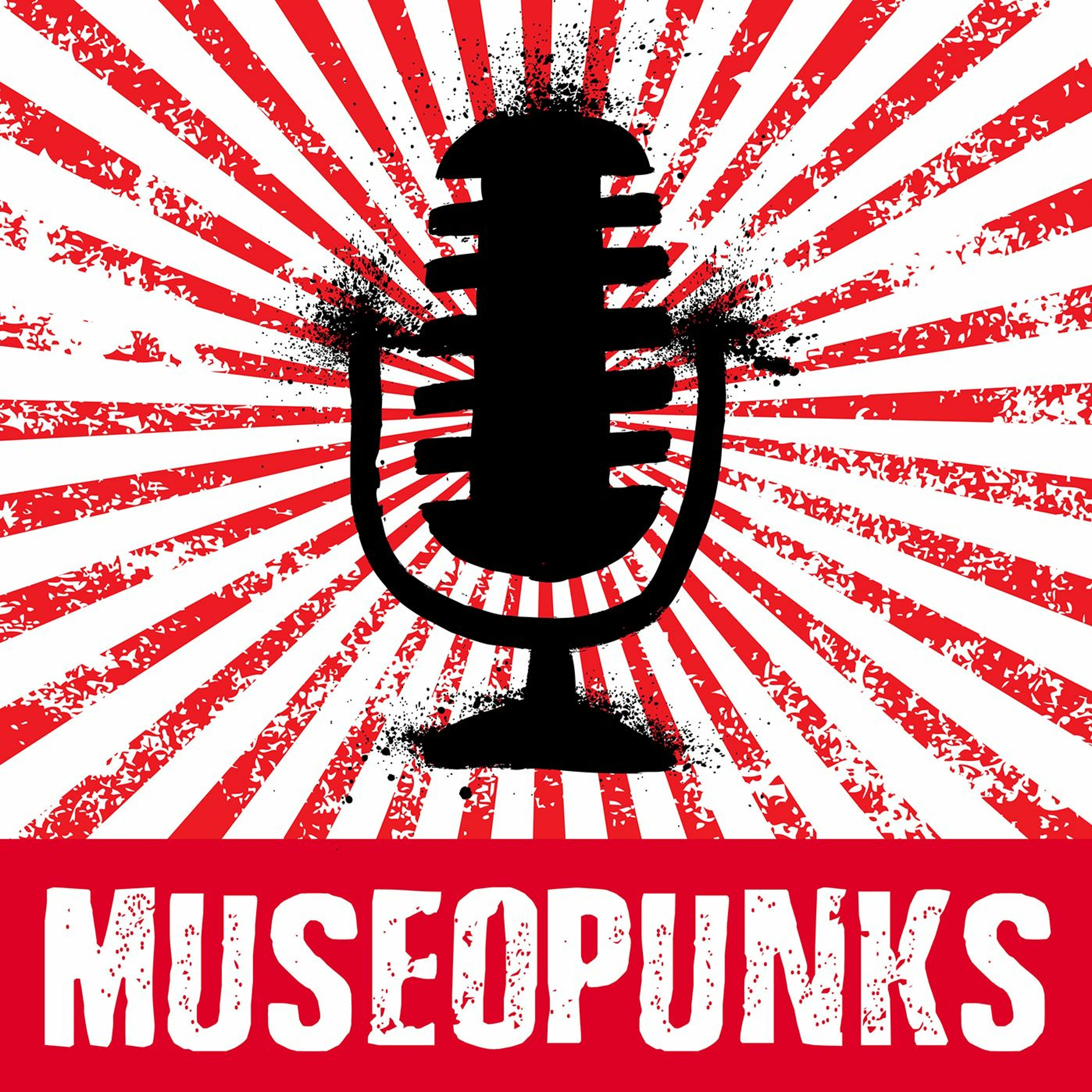
MuseopunksEpisode 25: The Next ChapterAs former Museopunk Jeffrey Inscho leaves the museum world, we take a moment reflect on the factors that influence a decision to leave or join the museum profession. We also examine what outside organizations can gain from hiring museum professionals–and what museums can gain from those who have grown up professionally in complementary industries. Plus, we preview a soon-to-air podcast that focuses on the wildly circuitous ways through which people come to, and leave, museums.
This episode is cohosted by Jason Alderman and Chad Weinard, and features interviews with Jeffrey Inscho and Ros Lawler.
Museopunks is presented by the Am...
2018-03-0858 min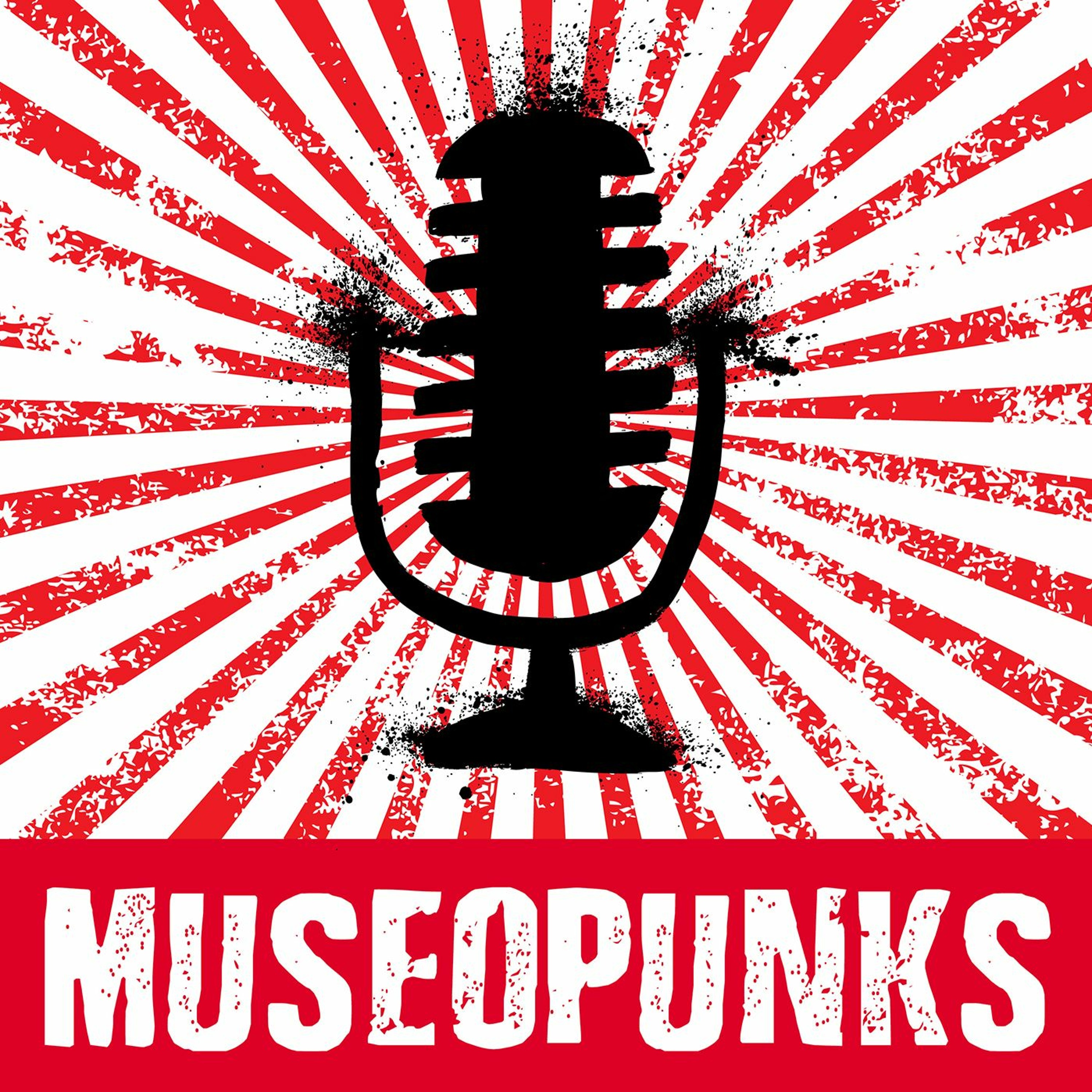
MuseopunksEpisode 24: Institutional BraveryIncreasingly, it feels like progressive museum practice is also political museum practice. So what does it mean for a museum to take a stand, and put social just at the heart of its work? In this episode, Suse talks with David Fleming, Director of National Museums Liverpool (NML) and President of the UK Museums Association, about the social impact of museum work, advocacy as a strategic objective, and what it means for a museum service to be openly political.
Plus, news about some big changes to the podcast! And quiet snorts from a new baby softly echoing throughout the interview.
...
2018-02-0234 min
SNaQFluorescent Coral, Tree Lobsters and a MuseoPunkThis week, we feature special guest host Jeffery Inscho. Along with running the Innovation Studio for the Carnegie Museums of Pittsburgh, Jeffery is the cohost of the awesome MuseoPunks podcast. Also, there's fluorescent coral, tree lobsters and more!
Hosted by Charissa Sedor and Ralph Crewe
Music by Kyle Simpson and Al Snyder
A Carnegie Science Center Podcast
2017-11-2100 minMuseopunksEpisode 23: The Gendered MuseumDid you know that several studies in recent years have shown that when women enter a specific field in large numbers, the pay for that field declines overall, even for the same jobs that men were doing? This is one of many implications of gendered professions, which are at the core of this month’s episode of Museopunks. The Punks dig into the implications of the gendered museum, and its impact on pay and the sector more broadly with Anne W. Ackerson and Joan H. Baldwin, whose new book Women in the Museum explores the professional lives of the sector’s fe...
2017-09-181h 10MuseopunksEpisode 22: Human BehaviorMuseums that want to impact their visitors are often concerned with changing their behaviors. However, before any kind of change can take place, it's important to understand visitors, and the behaviors that they bring into the museum with them. In this episode, the ‘Punks ask how museums can better understand and align their work around existing visitor behaviors. We talk to the first Neuroscience Researcher in an art museum to learn more about how the human brain understands the physical world, and how that connects to our emotions, and then connect with an experience designer whose work has focussed on so...
2017-08-1651 minMuseopunksEpisode 21: The OutsidersSince the 1960s, artists have been critically examining the practices of museums, at times critiquing the idea of what a museum is and how it presents its stories. One of the most influential exhibitions of Institutional Critique was Mining the Museum–an installation by artist Fred Wilson at the Maryland Historical Society, in collaboration with The Contemporary.
In this episode–made 25 years after Mining the Museum–the Punks explore the role outsiders such as artists and external consultants play in driving creative change and innovation within museum practice. What can outsiders do within the institution that permanent staff cannot? What are th...
2017-07-111h 14MuseopunksEpisode 20: An Ode to Self-CareProgressive museum work, particularly when focussed around community engagement, is often a form of emotion work that demands emotional labor. Museum professionals who are deeply engaged with the challenges of changing their institutions, negotiating a volatile political climate, or facilitating community work, can experience compassion fatigue, secondary traumatic stress, and burnout. So how can museum professionals look after themselves, in order to better care for their communities and colleagues?
In this episode, the Punks investigate the role of self-care in museum practice. Although the concept is often co-opted by marketing professionals as a kind of balm against open-ended anxiety, self-care...
2017-06-121h 10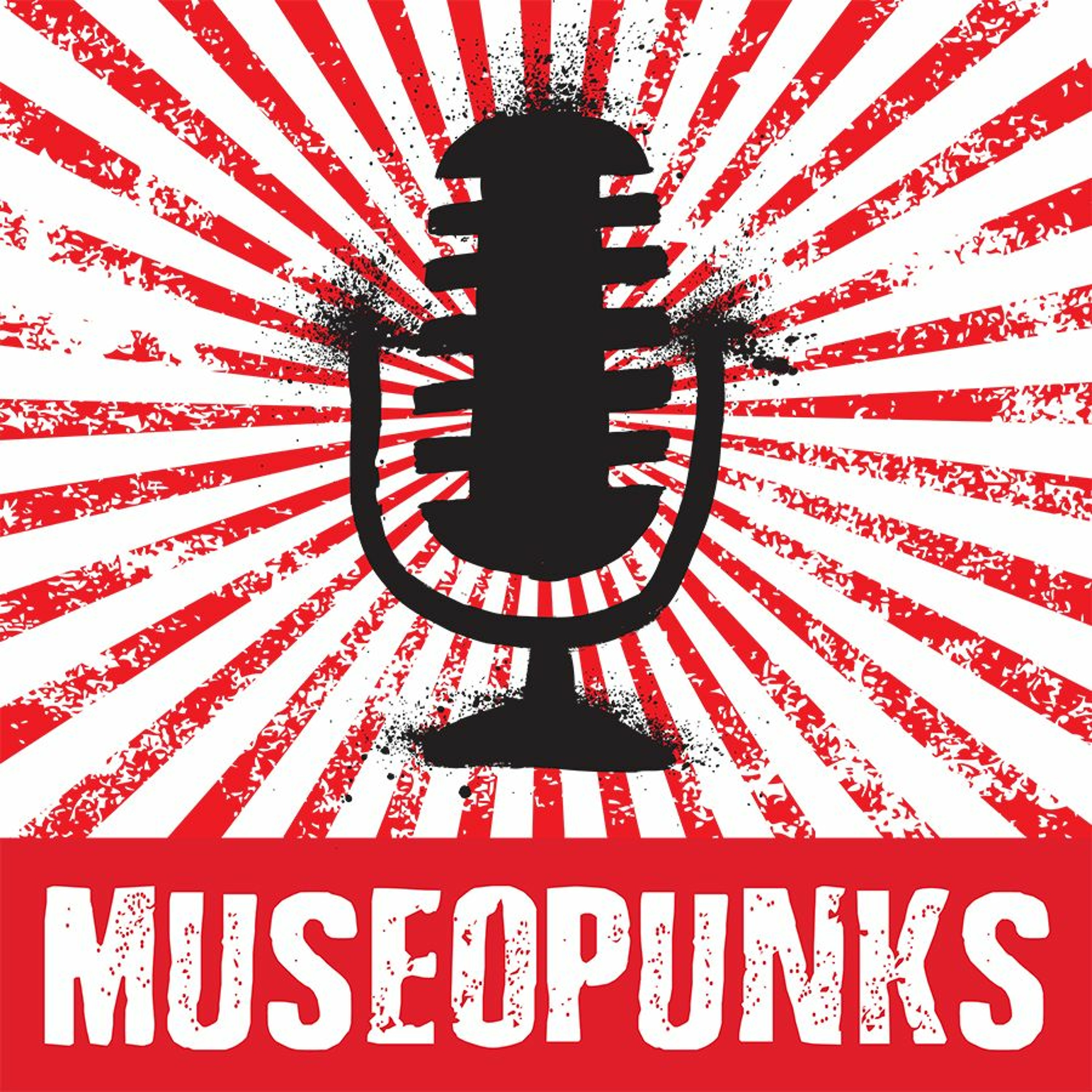
MuseopunksEpisode 19: The State of Love and TrustDon’t call this a comeback! After an almost three-year hiatus, Museopunks returns to explore progressive museum practice. How much has changed since the ‘Punks last hit the airwaves? Does Jeffrey have any new tattoos? Has Suse lost her Australian accent?
In this first episode of season two, the ‘Punks unpack the trials and tribulations of trust with Dr. fari nzinga and Adriel Luis. Report after report indicates that public trust in institutions is plummeting. The 2017 Edelman Trust Barometer, which surveys more than 33,000 people across 28 countries, showed the largest-ever drop in trust across the institutions of government, business, media and NGOs...
2017-05-161h 11Museopunks007: Punks InterruptedWhat happens when technical difficulties get in the way of regularly scheduled programming? The Punks make do, of course. In this episode, Suse and Jeffrey chat about inspiration, show dynamics, and their upcoming ‘Live’ shows at the Museum Computer Network conference in Montreal.
2015-06-0621 minMuseopunks008: Intergallactic PlanetaryOn August 27 this year, the Smithsonian’s Cooper-Hewitt, National Design Museum in NYC announced that it had acquired Planetary, an iPad app, which was also the Museum’s first acquisition of code. But how can such an acquisition be conserved for the future? What does it mean to acquire these kinds of highly-networked, ‘living’ objects? As Seb Chan and Aaron Cope of the Cooper-Hewitt wrote in their blog post on the acquisition:
"Museums like ours are used to collecting exemplary achievements made manifest in physical form; or at least things whose decay we believe we can combat and slow. To that end...
2015-06-061h 15Museopunks011: Communication BreakdownMarshall McLuhan once proposed that new technologies introduce new habits of perception, new ways of seeing and interacting with the world. In this session, the Punks and their guests will tackle this theory head-on.
How do digital tools and technologies alter our habits of perception? What does it means to look at the world with one eye always glued to a screen? How is digital culture impacting our visual and written language, and are we cool with all of this?
Guests:
Beck Tench, Director for Innovation and Digital Engagement, Museum of Life and Science
Matthew Israel, Director of The Art...
2015-06-061h 10Museopunks009: Museums as Digital CitizensDigitalCitizenship.net cites nine individual elements of digital citizenship: access, commerce, communication, literacy, etiquette, law, rights & responsibilities, health & wellness, and security (self protection). Cultural institutions are doing well in some respects, but what about other areas? Could museum interactive experiences not only provide access to rich content, but also help increase the overall digital literacy of users? Can our digital projects travel parallel paths in pursuit of both curatorial mission and digital good? Should they?
Guests:
Darin Barney, Canada Research Chair in Technology & Citizenship, McGill University
Kyle Jaebker, Director IMA Lab, Indianapolis Museum of Art
Luis Marcelo Mendes, Communications Consultant...
2015-06-061h 11Museopunks010: Inspiration, Muses and Forces that Inspire Creative Digital WorkOver the course of MCN2013, we’ll hear a lot about great #musetech projects and issues facing the sector. But in this session, the Punks want to learn about the muses and inspirations outside of the sector that help fuel and inform some of most creative work from some of the most interesting #musetech practitioners.
What music, literature or extra-curricular activities inspire us? And how do those inspirations relate to our professional approach?
Guests:
Don Undeen, Manager of Media Lab, Metropolitan Museum of Art
Micah Walter, Webmaster, Cooper-Hewitt National Design Museum
Koven Smith, Principal, Kinetic Museums
This episode was recorded li...
2015-06-0643 minMuseopunks014: The Economics of FreeTyler Green (Modern Art Notes) recently wrote that “In the future, most American art museums — say, those with operating budgets of ~$7 million and up — will offer free general admission.” In this episode, the Punks talk to Green, and Maxwell L. Anderson, Director, Dallas Museum of Art, about just what it takes for museums to go free, and how new technologies, such as those that can collect extensive visitor data, make ‘free’ a new kind of proposition.
Of particular focus in this episode will be the DMA’s 2013 decision to go free, and to offer free membership. How has technology changed the conversati...
2015-06-061h 01Museopunks013: Digital As A Dimension of EverythingOne of the most interesting sessions at MCN2013 was on The Future of Museum Digital Departments, which featured staff from the Tate, the National Gallery, London, Imperial War Museums, and The Metropolitan Museum of Art, and discussed the sometimes harsh realities of delivering a digital strategy within a complex organization. In the session, John Stack, Head of Digital Transformation at Tate, spoke about the museum’s recently adopted hub-and-spoke model for digital governance. In this episode, we break this idea down, and ask how different organisational structures can impact museums and digital organisations. How are museum digital departments integrated within br...
2015-06-0659 minMuseopunks012:Innovative CurationMuseopunks regularly digs into some of the more innovative practice in museums, but so far, we’ve haven’t tackled curating. In this episode, Suse catches up with one of the most powerful people in the world of art – Paola Antonelli (@curiousoctopus), Senior Curator of Architecture & Design, Director of Research & Development, MoMA – to find out what innovative curating looks like. What does it mean to collect the @ symbol? Do museums need R&D departments? There are more and more entrepreneurial museum projects and labs beginning to pop up, like the Spark!Lab National Network, started at the Smithsonian in 2008, or the Indi...
2015-06-0646 minMuseopunks015: Professional IdentityWhat does it mean to be a museum professional with an active online presence? How does blogging, Twitter, and other forms of social media communication give shape to a professional identity in the digital age? In this episode, the Punks talk to Nina Simon, Executive Director of the Santa Cruz Museum of Art and History, prolific blogger, and author of the book The Participatory Museum, and Ed Rodley, Associate Director of Integrated Media at Peabody Essex Museum and author of Thinking About Museums, about the impact that an active online and social media presence can have on museum work broadly...
2015-06-061h 09Museopunks016: Net NeutralityNet neutrality is a hot topic at the moment, in light of changes proposed by US Federal Communication Commission (FCC) Chairman Tom Wheeler that would allow Internet Service Providers to charge a premium for those who can afford to pay to deliver their content better and faster to their online audiences.
This issue has many in the museum sector concerned, with a post by Nancy Proctor on the Museums and the Web site noting that “It’s not hard to imagine a scenario in which the only way museum content gets seen online is if the museum has done a deal...
2015-06-0632 minMuseopunks017: Digital FabricationDiscussions about 3D scanning and printing technologies have started to gain momentum in the museum world, as they seem to offer museums significant new ways to engage with their collections, and audiences. Whether its 3D Hackathons (held to some consternation) or experimentation to replicate a 19th-century statue with 21st century technology, museums are seeing new possibilities for enabling new forms of access to collections, and fresh ways to engage with the public.
In this episode, the Punks talk to Liz Neely, formerly of the Art Institution of Chicago and President-Elect for the Museum Computer Network (MCN) board and Secretary/Treasurer...
2015-06-0658 minMuseopunks018: Rhetoric of the FutureWhat role does language have in dictating the way we talk and think about the future – and present – in museums? Does talking about the future hold museums back in the present? Do terms like “innovation” and “forward-thinking” actually promote the behaviours they connote? In this episode, the Punks talk to Colleen Dilenschneider, Chief Market Engagement Officer for IMPACTS, and Jeff Grabill, Professor of Rhetoric and Professional Writing and Chair of the Department of Writing, Rhetoric, and American Cultures at Michigan State University, about language, rhetoric, and the power of words in creating our world.
2015-06-0651 min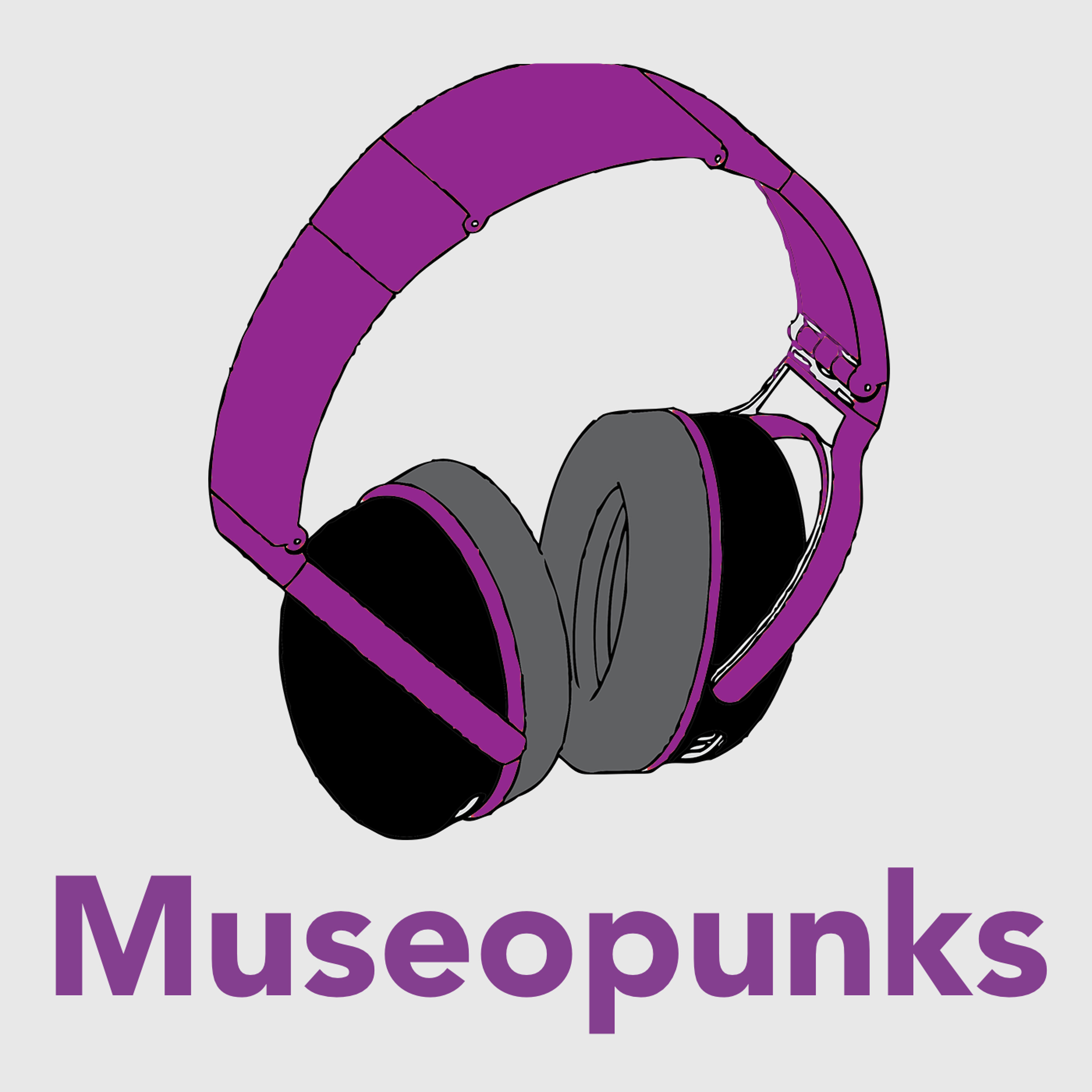
Museopunks004: Back to the FutureIn 2008, AAM (now the American Alliance of Museums) established the Center for the Future of Museums to help museums understand the cultural, political, economic, environmental, and technological trends shaping the world, and envision how museums can help their communities thrive in coming decades. Why is this important? As CFM Founding Director Elizabeth Merritt wrote in 2011: ‘The biggest challenge in preparing for the future is imagining what it will be like. One of the most important roles of futures studies is to help people write stories of the future that, like all good fiction, tell the truth about something that hasn’t ac...
2015-06-0647 min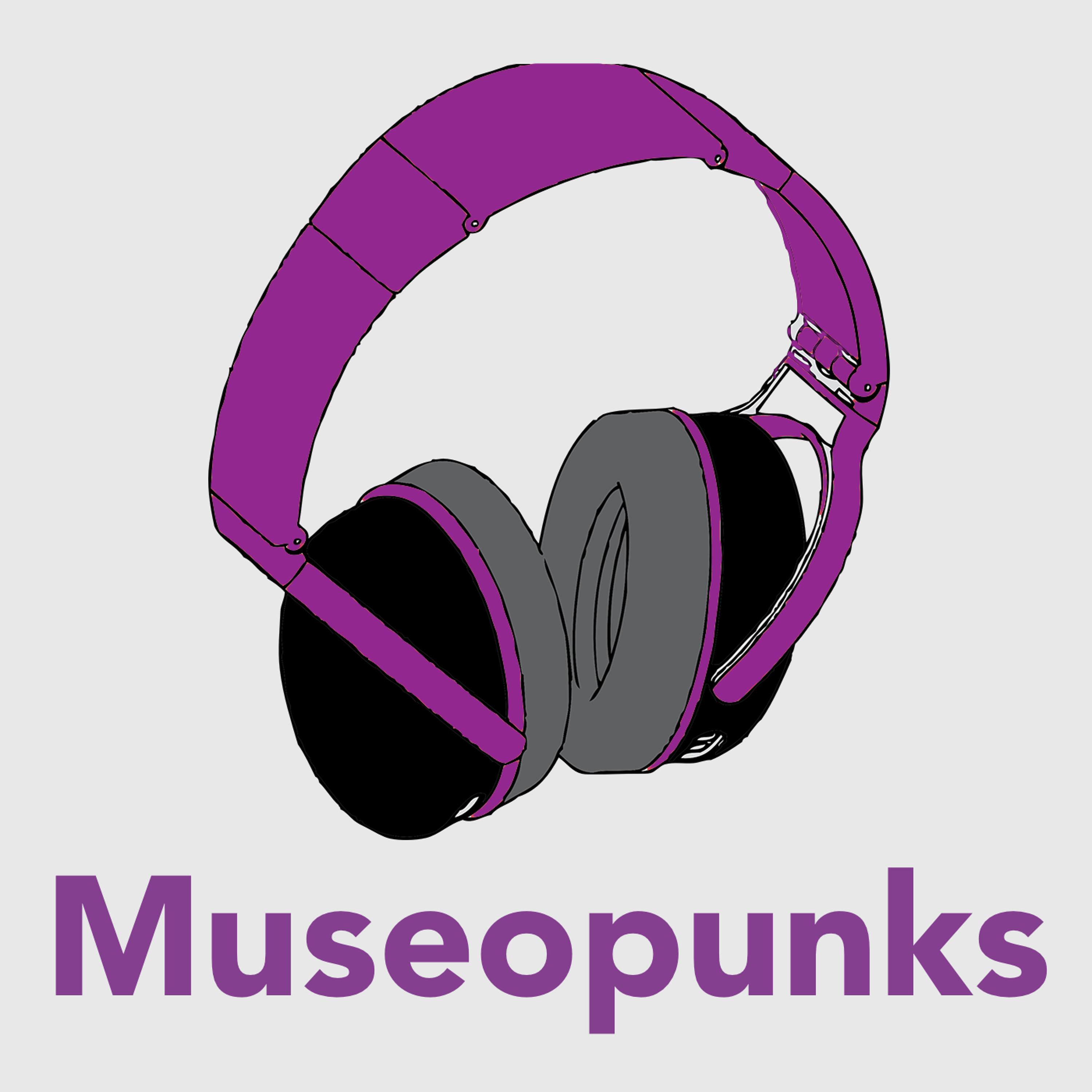
Museopunks005: Game On!Games are such a hot topic in museums, but the topic is a complex one. As blogger Kevin Bacon (no, not that one) points out, video games are expensive, are being made by many dedicated people outside museums, and can be a challenging vehicle for telling nuanced historical stories. So should museums invest in games? And if so, what should they be seeking to achieve?
In this episode, the Punks talk to Sharna Jackson, Tate Kids Editor and the woman behind Seahorse, a digital content agency for children, and Sophia George, co-founder of Swallowtail Games and the V&A’s fi...
2015-06-0646 min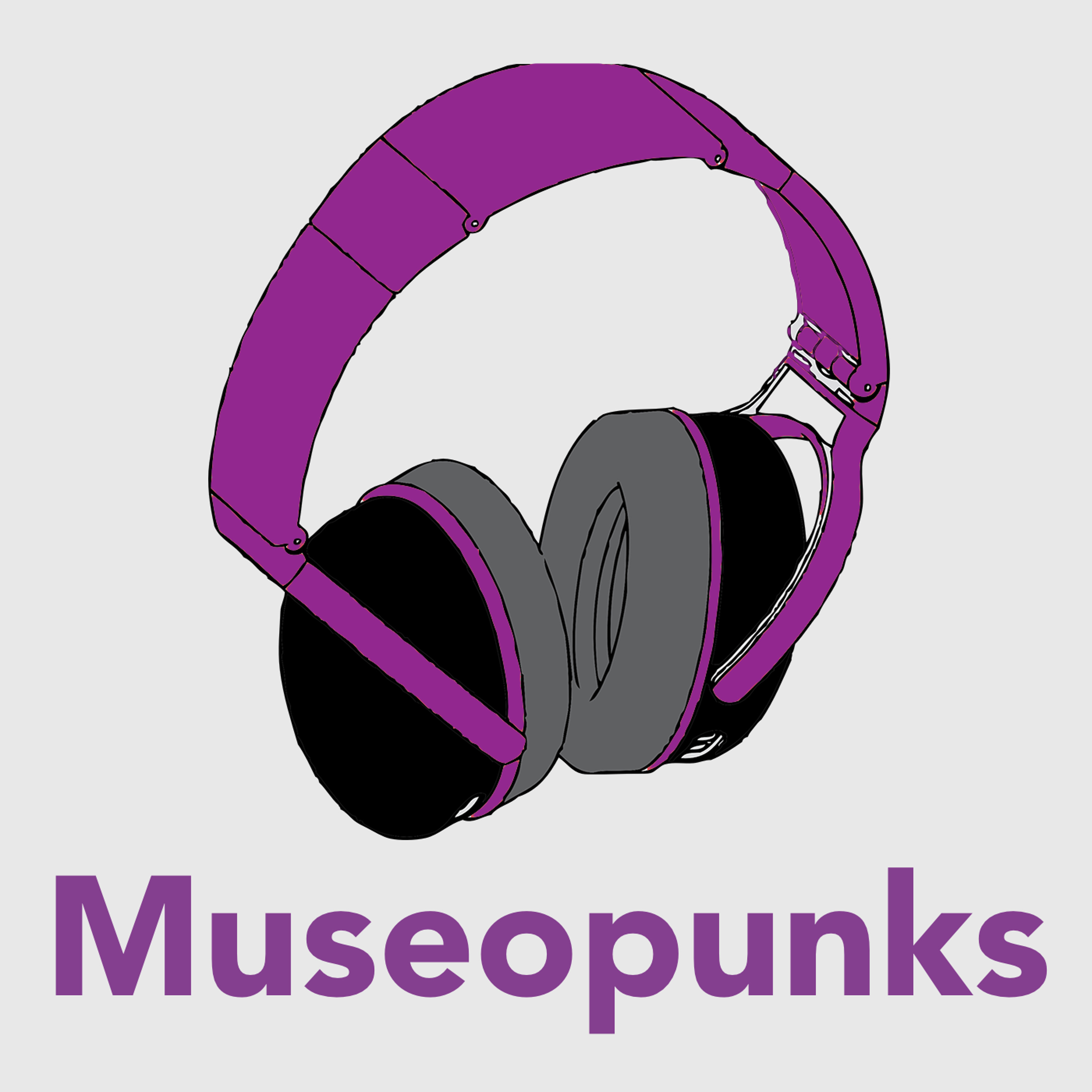
Museopunks006: Museums as Media OrganizationsNews and media organizations have been undergoing similar challenges to those facing museums in the digital age, with increased competition for attention, challenges to old models of authority, and the need to develop new kinds of business models and modes of practice in response to changing technological, social, and economic conditions. So what can museums learn from news and media organizations in order to change and adapt their practices to work effectively in an increasingly online and social media context?
In this episode, the Punks dig into these questions with a little help from Paul Schmelzer, Web Editor at the...
2015-06-0659 min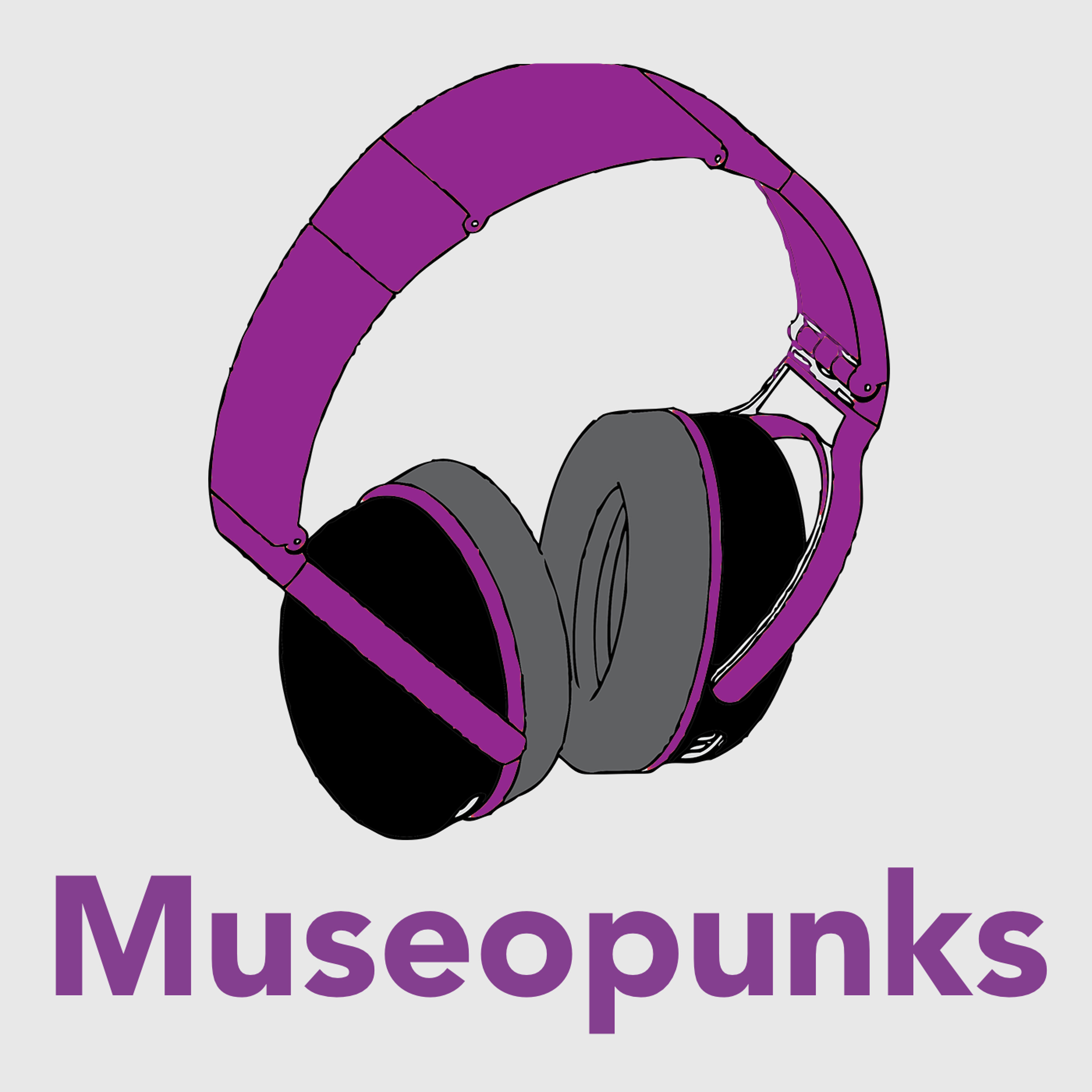
Museopunks003: The Shape of Punk to ComeIn 2012, Collections Trust CEO Nick Poole did a short analysis of 40 mission statements of leading UK museums and galleries, and discovered that the word “Future” was the third most common word used to describe the missions of the museums, double that of the word “past”. With such an eye to the future, it is little surprise to discover that museums spend some time thinking about the shape of things to come.
During recent museum conferences, there have been a number of sessions that consider museum futures and how cultural institutions can prepare for likely economic, social, and technological scenarios. At Museums...
2015-06-0634 min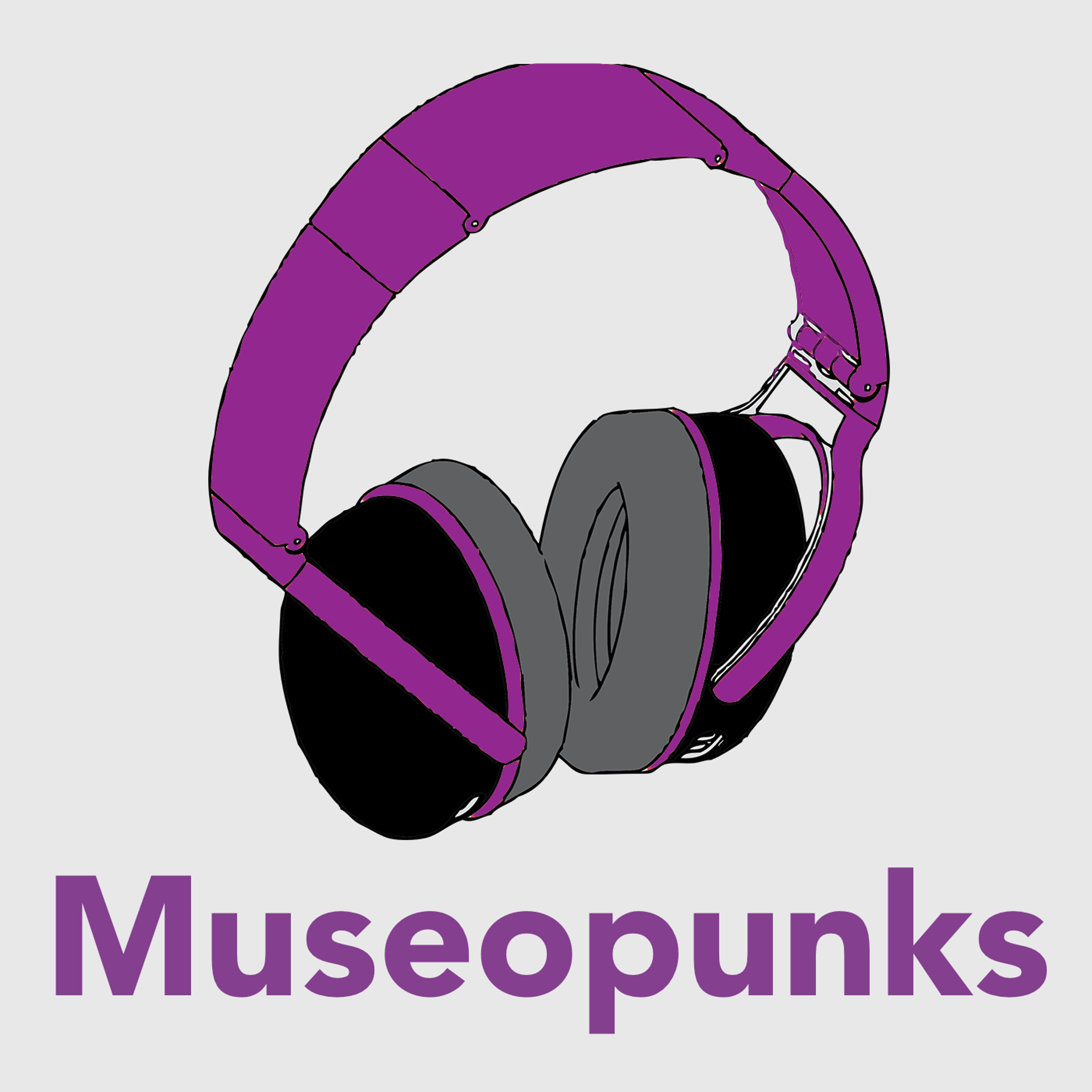
Museopunks002: Flip the ScriptWhat role does design and design thinking play in museum innovation? In this episode, the Punks dig into one of the “secret themes” that emerged out of Museums and the Web 2013: design. They talk to web strategy consultant and design thinking facilitator Dana Mitroff Silvers and Scott Gillam, Manager, Web Presence of Canadian Museum for Human Rights, about just how museums can think about design, and what role empathy plays in this process.
2015-06-0649 min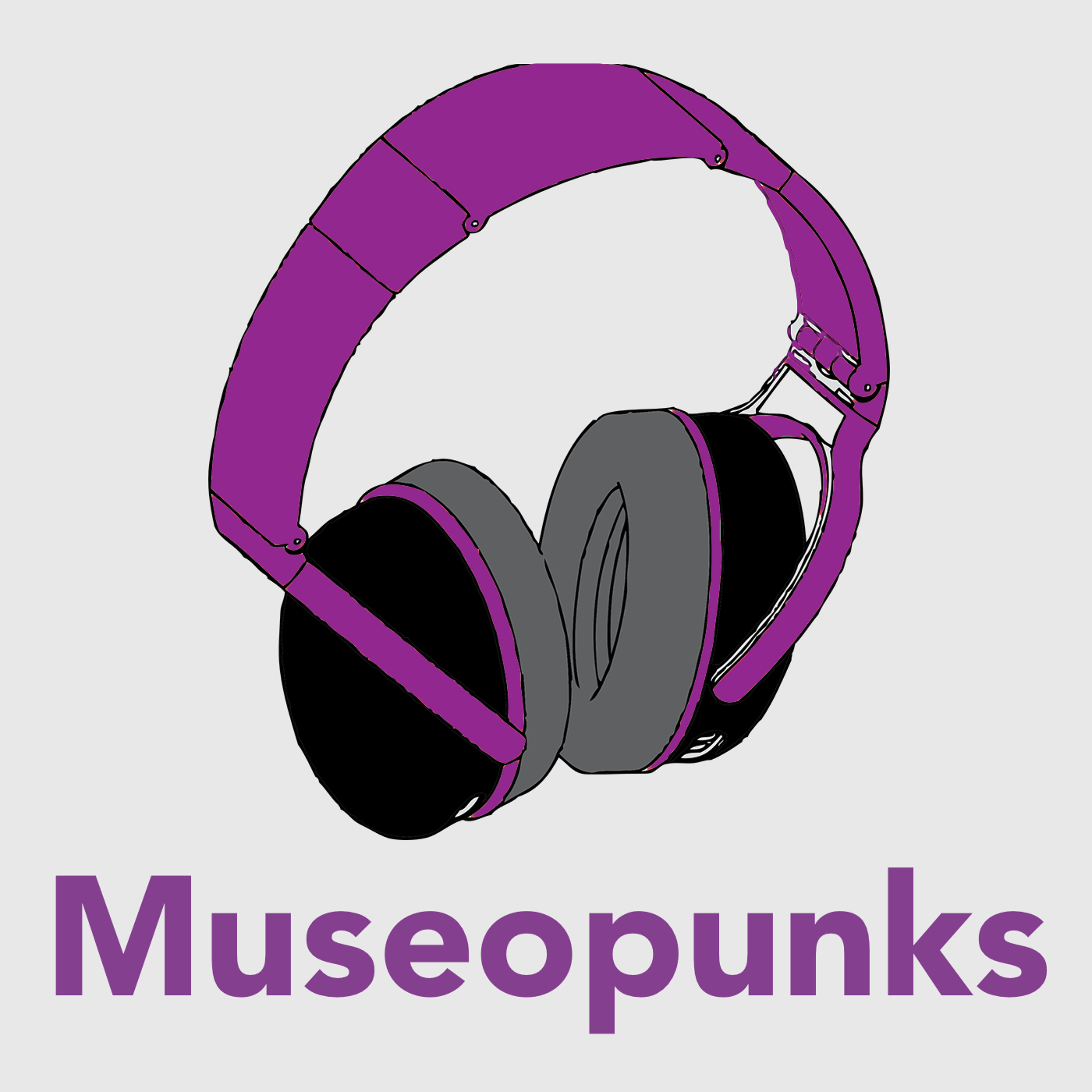
Museopunks001: Kick Out the JamsIn this, the inaugural episode of the Museopunks podcast, the Punks chat to Michael Edson, Director of Web and New Media Strategy at the Smithsonian Institution, and Paul Rowe, CEO of Vernon Systems, about museums in the Age of Scale. How can museums rethink their practices to work at web scale, from the smallest institutions up to the biggest?
2015-06-0647 min